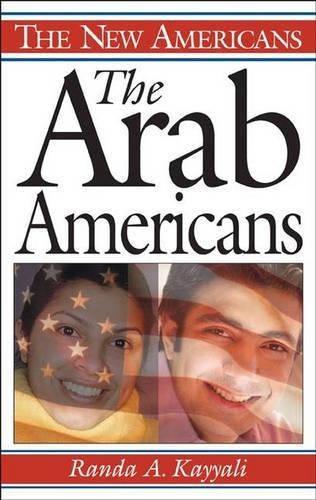
The Arab Americans
(Hardback)
Publishing Details
The Arab Americans
By (Author) Randa A. Kayyali
Bloomsbury Publishing PLC
Greenwood Press
30th December 2005
United States
Classifications
General
Non Fiction
Migration, immigration and emigration
973.04927
Winner of 2007 Arab American National Museum Book Award Honorable Mention 2007
Physical Properties
Hardback
216
Width 156mm, Height 235mm
454g
Description
Americans of Arab heritage have made major contributions to U.S. society, and this is a timely and unique overview of their immigration patterns, settlement, adaptation, and assimilation for a general audience. The first wave of Arab immigrants, mostly Christian men from Lebanon, Palestine, and Syria, arrived in the United States between 1880 and 1925. This book discusses their history as it looks at the successive waves of immigrants, including the post-1965 immigrants, who have brought more diversity to the Arab American community. The latest immigrants have included more Muslims, many are from Egypt, Iraq, and Jordan. The continuing interest in the Middle East, Islam, and the Muslim way of life make this a must-have source for those seeking to understand current events and our multicultural society. Americans of Arab heritage have made major contributions to U.S. society, and this is a timely and unique overview of their immigration patterns, settlement, adaptation, and assimilation for a general audience. The first wave of Arab immigrants, mostly Christian men from Lebanon, Palestine, and Syria, arrived in the United States between 1880 and 1925. This book discusses their history plus looks at the successive waves of immigrants, including the post-1965 immigrants, who have brought more diversity to the Arab American community. The latest immigrants have included more Muslims and many are from Egypt, Iraq, and Jordan. The continuing interest in the Middle East, Islam, and Muslim way of life make this a must-have source to help understand current events and our multicultural society. The book begins by giving a broad political and social history of the Arab world since the advent of Islam in 632 CE. Kayyali also takes care to be inclusive of the different groups who can be classified as Arab, and the discussion of who these people are, with their different religions and beliefs, is an enlightening base to understand their experiences as Arab Americans. Early immigrants typically became peddlers or worked in the new factories and mills. As they gave up thoughts of returning to their home countries, they fought to be classified as white to gain citizenship, and the impact of the Census on their struggle is discussed in detail. Their assimilation and adaptations are discussed, and readers will learn about family issues, women's issues, food, media, and religious practices in the Arab American communities. Within the larger Arab American community, the main issues of pan-Arab identification, Christian and Muslim identities, and generational differences are covered, along with their social networks and celebrations. A final chapter focuses on the impact of Arab Americans on U.S. society, from the arts to politics, with insight into intergroup relations and the impact of 9/11. A sampling of noted Arab Americans, such as Ralph Nader, a glossary, statistical tables, and photos are included as well.
Reviews
Interest in Arab Americans has grown exponentially since 9/11, resulting in new works trying to bring awareness and understanding of the Arab American community. Given the internal diversity and extensive historical immigration of persons from the Arab world, accomplishing this is no easy task. Kayyali tries to do so, building on the corpus of previous research and writing on the topic. . . . [T]he book is better than others on the market, especially in terms of trying to draw attention to the diversity of the Arab American community and contradicting the notion of Arab American as a monolithic entity. Recommended. Lower-division undergraduate collections and public libraries. * Choice *
These titles offer high school and college students and in-depth look at Salvadoran Americans and Arab Americans, from their history in El Savador and the Middle East and North Africa, respectively, to their adjustment issues and communities in the United States today. (Reviewed in conjunctions with The Salvadoran Americans) * MultiCultural Review *
Author Bio
Randa A. Kayyali is a PhD candidate at George Mason University and has written on Arab American issues.
